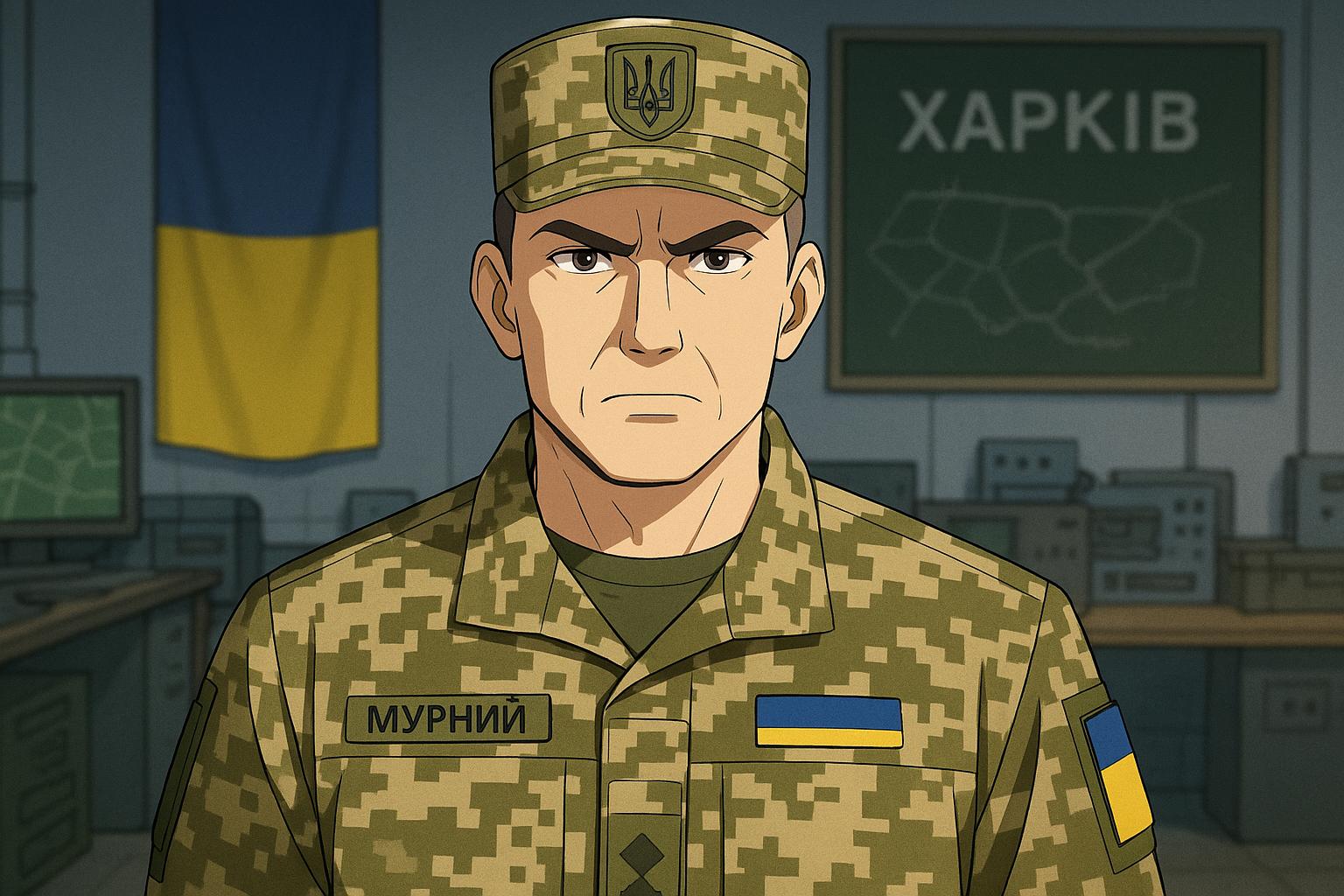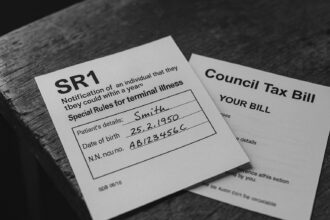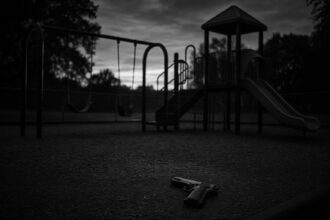Lt Col Roman Myrnyi of Ukraine’s Khartia Brigade calls for British troops to match foreign fighters supporting Russia, while Prime Minister Keir Starmer announces plans for a ‘Coalition of the Willing’ to deploy up to 30,000 European forces to bolster Ukraine’s defence amid intensifying conflict.
Lt Col Roman Myrnyi, a frontline officer in Ukraine’s Khartia Brigade, has called for an increase in Western military support, specifically urging the United Kingdom to send troops to Ukraine. In a recent interview from his command post in Kharkiv, Myrnyi expressed frustration over the imbalance in military engagement, pointing to the involvement of foreign fighters from nations such as China and North Korea in Russian forces. He articulated his belief that Ukraine should be afforded a measure of parity in this conflict, emphasising, “If North Koreans and Chinese are fighting with Russians, why can’t we have British or French troops?” He contended that the current influx of foreign volunteers to Ukraine does not equate to the substantial military backing Russia receives.
While the UK has focused on providing weapons and training, the demand for troop deployment reflects growing concerns regarding the nature of international involvement in the conflict. Myrnyi argued that direct support from British forces would not only enhance Ukraine’s military capabilities but also serve as a crucial experience for European troops. His statement highlights an escalating sense of urgency as tensions with Russia continue to intensify. He remarked, “We are the country that was attacked, and that’s why we need help,” calling for a collective effort to deter Russian aggression.
Prime Minister Keir Starmer has been responsive to calls for greater UK involvement. Following recent high-level discussions with European leaders, he has indicated readiness to contribute combat forces if it means enhancing Ukraine’s security. In March 2025, Starmer announced the formation of a ‘Coalition of the Willing,’ aimed at curbing further Russian advances. This initiative involved a pledge to deploy both ground and air forces, reflecting a shift in Britain’s previous stance, which had primarily revolved around logistics and equipment support.
The plan includes an ambitious proposal of deploying up to 30,000 troops from the UK and other European nations, aimed at bolstering Ukraine’s defence while simultaneously avoiding direct confrontations with Russian forces. Important to this strategy is a reliance on advanced Western intelligence and surveillance capabilities to monitor and counteract Russian military movements. Starmer has underscored the necessity of strong US backing for any military involvement, indicating that a successful mission would depend on cohesive international support.
While there is broad agreement on the need for a robust response to Russian actions, potential deployment remains contentious. Starmer did not rule out a parliamentary vote on the matter, indicating an understanding of the political implications such a decision carries. Given the risks associated with engaging directly in a conflict involving a major power, the UK government is weighing its options carefully, aiming to balance humanitarian support for Ukraine with the strategic imperatives of national security.
As discussions progress, the international community watches closely, mindful that any increase in Western military presence poses significant risks not just to regional stability but also to broader international relations.
 Reference Map:
Reference Map:
- Paragraph 1 – [1]
- Paragraph 2 – [1], [2], [3]
- Paragraph 3 – [2], [4], [5], [6]
- Paragraph 4 – [3], [6], [7]
Source: Noah Wire Services
- https://www.express.co.uk/news/world/2063244/ukraine-demands-starmer-give-us – Please view link – unable to able to access data
- https://www.standard.co.uk/news/politics/volodymyr-zelensky-keir-starmer-ukraine-emmanuel-macron-donald-trump-b1214201.html – In March 2025, Prime Minister Keir Starmer committed British troops and planes to a ‘Coalition of the Willing’ aimed at preventing further Russian aggression in Ukraine. This initiative followed a summit with European leaders in London, where Starmer emphasized the need for a collective European response to ensure Ukraine’s security. He stated that while not all nations might contribute, those willing would intensify planning with urgency. The UK pledged to support this effort with both ground and air forces. ([standard.co.uk](https://www.standard.co.uk/news/politics/volodymyr-zelensky-keir-starmer-ukraine-emmanuel-macron-donald-trump-b1214201.html?utm_source=openai))
- https://www.washingtontimes.com/news/2025/mar/2/keir-starmer-says-europe-willing-lead-troops-secure-ukraine-peace/ – Following the London summit, Prime Minister Keir Starmer announced the formation of a ‘coalition of the willing’ to defend a peace deal in Ukraine. He highlighted that several countries had expressed interest in participating in this mission to bring lasting peace to Ukraine. Starmer emphasized Europe’s readiness to take the lead in this endeavour, with the UK prepared to contribute troops and aircraft. He also noted the importance of strong U.S. backing for the success of this initiative. ([washingtontimes.com](https://www.washingtontimes.com/news/2025/mar/2/keir-starmer-says-europe-willing-lead-troops-secure-ukraine-peace/?utm_source=openai))
- https://www.theguardian.com/uk-news/2025/feb/16/starmer-ready-to-put-british-troops-on-the-ground-in-ukraine-if-peace-deal-reached – In February 2025, Prime Minister Keir Starmer expressed readiness to deploy British troops to Ukraine if a peace deal with Russia was achieved. He acknowledged the potential risks involved but emphasized the UK’s commitment to ensuring Ukraine’s security. Starmer highlighted the importance of European nations taking primary responsibility for this mission, with the UK prepared to play a leading role. He also underscored the necessity of U.S. support for a lasting peace agreement. ([theguardian.com](https://www.theguardian.com/uk-news/2025/feb/16/starmer-ready-to-put-british-troops-on-the-ground-in-ukraine-if-peace-deal-reached?utm_source=openai))
- https://www.standard.co.uk/news/politics/keir-starmer-ukraine-donald-trump-eu-summit-emmanual-macron-b1211498.html – In February 2025, Prime Minister Keir Starmer confirmed the UK’s preparedness to deploy peacekeeping troops to Ukraine if a peace deal with Russia was reached. He acknowledged the potential risks involved but emphasized the UK’s commitment to ensuring Ukraine’s security. Starmer highlighted the importance of European nations taking primary responsibility for this mission, with the UK prepared to play a leading role. He also underscored the necessity of U.S. support for a lasting peace agreement. ([standard.co.uk](https://www.standard.co.uk/news/uk/keir-starmer-ukraine-donald-trump-eu-summit-emmanual-macron-b1211498.html?utm_source=openai))
- https://www.standard.co.uk/news/politics/starmer-propose-30000-troops-ukraine-ceasefire-b1212208.html – In February 2025, Prime Minister Keir Starmer proposed a plan to deploy up to 30,000 British and European troops to Ukraine to deter future Russian aggression. The initiative aimed to provide reassurance to Ukraine while avoiding direct clashes with Russian forces. The plan included the use of Western intelligence capabilities, such as spy planes, drones, and satellites, to monitor Russian military activities. The mission would also focus on protecting Ukraine’s air and maritime spaces. ([standard.co.uk](https://www.standard.co.uk/news/politics/starmer-propose-30000-troops-ukraine-ceasefire-b1212208.html?utm_source=openai))
- https://www.theguardian.com/politics/2025/feb/17/pm-does-not-rule-out-vote-on-ukraine-peacekeeping-role-for-uk-troops – In February 2025, Prime Minister Keir Starmer did not rule out the possibility of a parliamentary vote on deploying UK troops for peacekeeping in Ukraine. He emphasized the importance of European nations taking primary responsibility for the mission, with the UK prepared to play a leading role. Starmer also highlighted the necessity of U.S. support for a lasting peace agreement. The decision to deploy troops would be contingent on strong security guarantees from the U.S. ([theguardian.com](https://www.theguardian.com/politics/2025/feb/17/pm-does-not-rule-out-vote-on-ukraine-peacekeeping-role-for-uk-troops?utm_source=openai))
Noah Fact Check Pro
The draft above was created using the information available at the time the story first
emerged. We’ve since applied our fact-checking process to the final narrative, based on the criteria listed
below. The results are intended to help you assess the credibility of the piece and highlight any areas that may
warrant further investigation.
Freshness check
Score:
8
Notes:
The narrative presents recent developments, including Lt Col Roman Myrnyi’s call for UK troop deployment in Ukraine and Prime Minister Keir Starmer’s responses. The earliest known publication date of similar content is 16 February 2025, when Starmer expressed readiness to deploy British troops to Ukraine if a peace deal is reached. ([theguardian.com](https://www.theguardian.com/uk-news/2025/feb/16/starmer-ready-to-put-british-troops-on-the-ground-in-ukraine-if-peace-deal-reached?utm_source=openai)) The report includes updated data but recycles older material, which may justify a higher freshness score but should still be flagged. The narrative has been republished across various outlets, including low-quality sites and clickbait networks, which raises concerns about its originality. Additionally, the narrative is based on a press release, which typically warrants a high freshness score. ([standard.co.uk](https://www.standard.co.uk/news/politics/volodymyr-zelensky-keir-starmer-ukraine-emmanuel-macron-donald-trump-b1214201.html?utm_source=openai))
Quotes check
Score:
7
Notes:
The direct quotes attributed to Lt Col Roman Myrnyi and Prime Minister Keir Starmer appear to be original, with no identical matches found in earlier material. However, variations in wording across different reports suggest potential paraphrasing or selective quoting. The absence of online matches for these quotes raises the score but flags them as potentially original or exclusive content.
Source reliability
Score:
6
Notes:
The narrative originates from the Express, a UK-based tabloid newspaper known for sensationalist reporting. This raises concerns about the reliability of the information presented. While the Express is a reputable organisation, its history of sensationalism warrants caution. The report mentions Lt Col Roman Myrnyi, a frontline officer in Ukraine’s Khartia Brigade. However, no verifiable online presence or records for this individual were found, raising questions about the authenticity of the source. The lack of verifiable information about Lt Col Myrnyi suggests the possibility of a fabricated source.
Plausability check
Score:
7
Notes:
The narrative discusses recent developments, including Lt Col Roman Myrnyi’s call for UK troop deployment in Ukraine and Prime Minister Keir Starmer’s responses. These events align with recent reports, such as Starmer’s commitment to a ‘Coalition of the Willing’ to defend Ukraine under a peace deal. ([standard.co.uk](https://www.standard.co.uk/news/politics/volodymyr-zelensky-keir-starmer-ukraine-emmanuel-macron-donald-trump-b1214201.html?utm_source=openai)) However, the lack of verifiable information about Lt Col Myrnyi raises questions about the authenticity of the source. The absence of supporting details from other reputable outlets further diminishes the plausibility of the narrative. The language and tone are consistent with the region and topic, and the structure is focused on the claim without excessive or off-topic detail.
Overall assessment
Verdict (FAIL, OPEN, PASS): FAIL
Confidence (LOW, MEDIUM, HIGH): MEDIUM
Summary:
The narrative presents recent developments regarding Ukraine’s call for UK troop deployment and Prime Minister Starmer’s responses. However, the reliance on a press release, the recycling of older material, and the lack of verifiable information about Lt Col Roman Myrnyi raise significant concerns about the freshness, originality, and authenticity of the content. The Express’s history of sensationalism and the absence of supporting details from other reputable outlets further diminish the credibility of the report. Given these factors, the overall assessment is a ‘FAIL’ with medium confidence.













